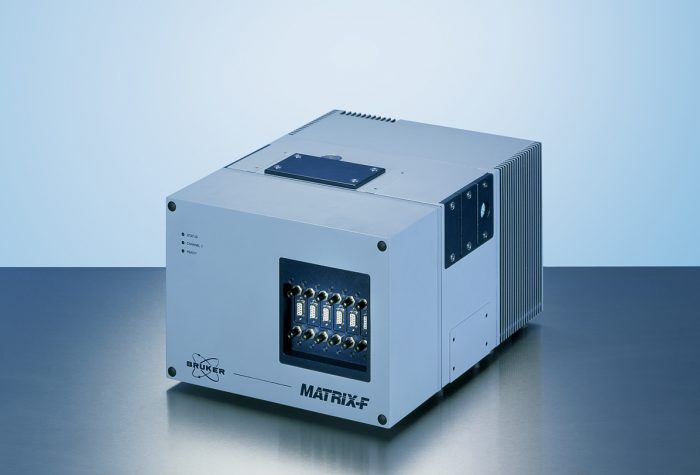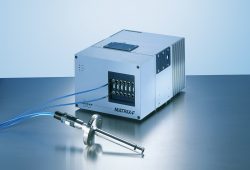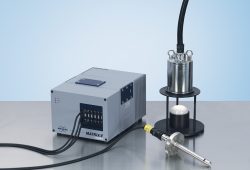FT-NIR Online Spectrometer Matrix-F
Description
On-line FT-NIR Analysis
The award winning MATRIX-F FT-NIR spectrometer allows the direct measurement in process reactors and pipelines, leading to a better understanding and control of the process.
MATRIX-F features:
- Accurate in-line results in seconds
- Multiple components per measurement
- Non-destructive analysis
- Optional built-in 6-port multiplexer
- Direct method transfer
- Rugged design
- Ethernet connectivity and industry standard communication protocols
Real-time FT-NIR
The advantages of real time, on-line FT-NIR analysis have been well established. However, conventional spectrometers can only be installed close to the process that they are monitoring, which makes the analyzer be exposed to a hostile environment, like drastic temperature changes and exposure to dust and dirt. Furthermore, the instrument needs to be positioned in hard-to-access and often Ex-protected area.
By using fiber optics technology, the difficult to reach measurement points can be accessed by industry hardened fiber optic probes, while the MATRIX-F is positioned, e.g. in an analysis house. Bruker Optics offers complete solutions for various on-line analysis tasks.
Maximum Utility
The MATRIX-F is the only FT-NIR spectrometer which can measure material in contact as well as contactless with just one instrument using light fiber technology.
Depending on your individual needs the MATRIX-F can be equipped as follows:
MATRIX-F: classical FT-NIR spectrometer with fiber optic coupling for the use of flow cells and conventional probes (for solids and liquids).
MATRIX-F emission: special version of the MATRIX-F spectrometer for the use of fiber-coupled measurements heads for the contact-less measurements only.
MATRIX-F duplex: extension of the classical MATRIX-F FT-NIR spectrometers for the simultaneous use of fiber optic probes and fiber-coupled measurement heads
Specification
Advanced Technology
The MATRIX-F is a dedicated FT-NIR process spectrometer that can directly withstand harsh environments.
This instrument uses state-of-the-art optics for outstanding sensitivity and stability in a compact module. Its innovative design provides consistent high quality results, less downtime, direct methods transfer and the possibility of new applications that less sensitive and precise instruments are incapable of. Full support of industry standard communication protocols guarantee an easy integration.
The MATRIX-F can also be installed in the laboratory as a stand-alone system for method development and then move directly into your process application. It is available as a free-standing unit with NEMA 4/IP66 (splashproof) housing, but can also be mounted in a standard 19 inch rack in a temperature controlled cabinet. The MATRIX-F can be equipped with a 6 port fiber optic multiplexer.
The MATRIX-F was designed for reliability and easy maintenance. Consumable components on pre-aligned mounts are user-exchangeable without any realignment of the optics. The instrument can be serviced quickly for minimal disruption of the manufacturing process
Applications
FT-NIR Process Monitoring
Today many manufacturers are striving not only to produce the highest quality final product but also to improve manufacturing efficiency by taking analysis technology from the laboratory and applying it in their plants. By gaining tighter control over the manufacturing process, it is possible to optimize the use of materials and reduce or eliminate the production of off-specification material, thus avoiding reprocessing or disposal costs.
Common process control applications include direct monitoring of chemical reactions and quality of intermediate and final products:
- Direct measurement in process reactors or pipelines, over webs or conveyor belts.
- Remote measurements over long distances.
- Improved process understanding and control.
Ideal tool for determination of homogeneity of blending processes, concentrations of constituent chemicals and state of polymerization processes in various industries








